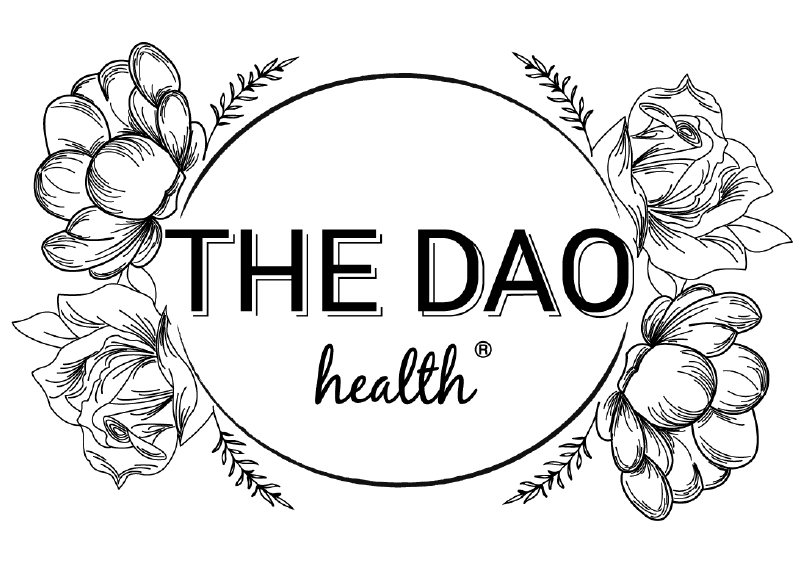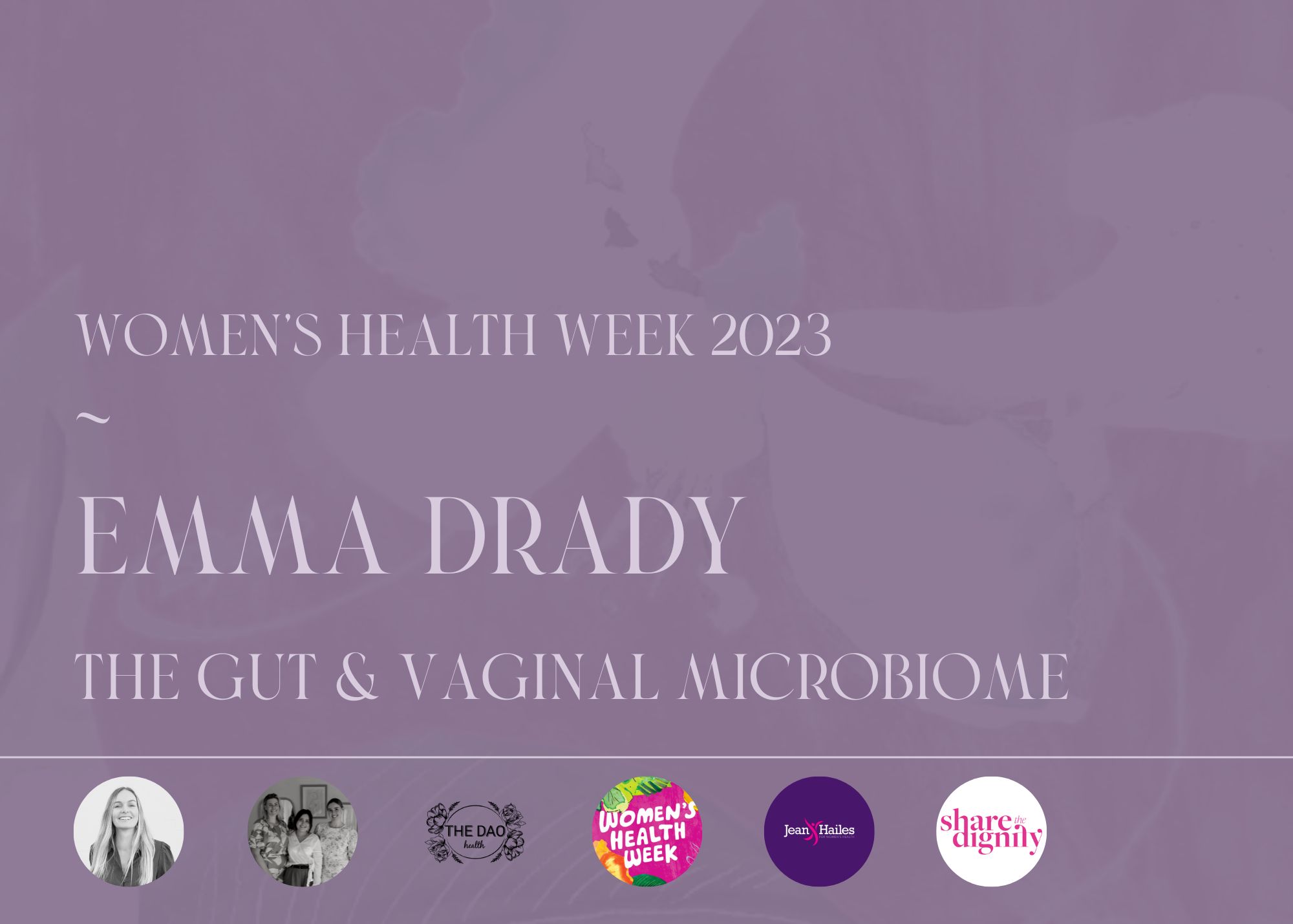The Dao Does X Jean Hailes Women’s Health Week 2023 Journal Series ~
The Importance of the Gut and Vaginal Microbiome for Women’s Health with Naturopath Emma Drady ~
Traditional Chinese Medicine has long known the importance of the digestive system for optimal health and well-being. From a Chinese medical perspective, the digestive organs of the Spleen and Stomach are an integral component of the body’s production of Qi and Blood, which support all physiological functions, providing energy and nourishment for the body’s organs, meridian systems and importantly, our reproductive health. The Dao Health utilises the modalities of acupuncture, Chinese herbal medicine, supplementation and Chinese medicine dietary therapy for patients presenting with a range of gastrointestinal conditions including, IBS, constipation, gastritis, Crohn’s, coeliac disease and microbiome imbalances.
The marrying of Naturopathic Medicine and Traditional Chinese Medicine is highly effective for the management of complex conditions, such as microbiome imbalances as they can both work synergistically and individually from each healthcare model; utilizing the best of modern naturopathic microbiome testing, supplementation and naturopathic medicine, with traditional Chinese medicine dietary therapy, Chinese herbal medicine and acupuncture treatment. An integral allied healthcare practitioner and former team member of The Dao Health, who is a part of our integrative healthcare model is Emma Drady, a Women’s Health Naturopath. We often work with Emma to support our patients who may require more thorough microbiome and vaginal microbiome testing diagnosis and treatment to optimise their overall health, well-being and fertility.
~
Women’s Health Naturopath, Emma Drady ~
Emma Drady (BHlthSc) is a naturopath working in the complementary health industry. She treats women of various ages, cultures and backgrounds to help them achieve their health goals with the use of herbal medicine, wholefood nutrition and lifestyle advice. Emma has a deep understanding of the science behind plants, the functions of the human body, and the relationship between lifestyle and how it impacts our health. Her passion for nature and supporting women have driven her to write her first book, Women & Nature available for pre-order.
~
1. What does Women’s Health mean to you?
As a woman on the journey of finding health and peace within my own body, I have great empathy and compassion for all women on a similar path. I care deeply about women’s rights to access the health services they need, science exploring women-only or women-dominated diseases (like Endometriosis), and education for all humans on the functions of their bodies.
A healthy woman, to me, is not only a well body but a supported woman, an informed woman, a held woman.
2. What is the vaginal microbiome?
The vaginal microbiome is the make up of microbes found within the vagina. All areas of the human body – our gut, our skin, our respiratory system – have their own unique microbiome. The vagina’s however is quite different to the rest of the body. Where diversity is usually key to health, the vaginal microbiome suffers in times of diversity. We essentially only want one type of bacteria to live in and dominate the area. When this is disrupted, women can experience all manner of unpleasant symptoms. Along with this, having an imbalanced vaginal microbiome, in some instances, can lead to other health concerns and complications.
3. What is the gut microbiome?
The gut microbiome is the collection of bacteria, parasites, viruses, yeasts and other microbes found inside the large colon. This microbiome weighs anywhere from 2-3kgs in adults and is just as important to human health as our liver and our stomach. Without a healthy gut microbiome, we can struggle to digest nutrients from our food; we can experience undesirable symptoms such as bloating, gas or changes to our bowel movements; our immune system weakens; and our hormone levels are disrupted.
4. How can the vaginal and gastrointestinal microbiome influence women’s health?
Disruptions to the microbiomes within the human body are a given, it is something we can’t avoid. Things like antibiotic use, our diet (even as infants and children), our environment, stress and the people we interact with can influence our microbiomes. Most of the time, our body is resilient enough to bounce back from these disruptions, however, unfortunately not always.
When the vaginal microbiome is disrupted women can experience thrush, bacterial vaginosis or simply unpleasant symptoms such as itching, redness, pain, abnormal discharge or changes to smell. In the long term, having an imbalance in the vaginal microbiome can impact menstrual cycles, fertility and birth outcomes.
The gut microbiome is a little more resilient as it can function quite well during times of diversity and change. However, if that change is too immense or prolonged that is when symptoms arise. For women, having a disrupted gut microbiome can change the way hormones are processed and detoxed from the body, which can lead to things like acne, pain and period changes. There is also some research that suggests bacteria influence the growth of Endometriosis, and other research shows that a mum’s microbiome affects her child’s immune system and gut health.
5. How can women support their health by ensuring optimal vaginal flora and gut health?
I would suggest to any woman who may be experiencing the symptoms or conditions mentioned above to reach out to a naturopath to explore testing and treatment options. The vaginal microbiome test is a simple swab and the gut microbiome testing as a stool sample, both done from home.
If these things are not available or if you are simply wanting to maintain a healthy vaginal or gut microbiome these are a few basic things I recommend:
- Eat a wide variety of plant foods: fruit, veggies, nuts, seeds, herbs, spices and wholegrains (aim for 40 different plants every week)
- Incorporate probiotic foods such as sauerkraut, kimchi, kefir and miso into your diet
- Avoid consuming too much sugar, including alcohol, as this feeds microbes such as Candida
- Use pH-balanced lubricants and condoms during sex to avoid disrupting the delicate pH of the vagina
- Ensure you thoroughly wash and disinfect menstrual cups, period underwear and sex toys
- Prioritise 7-9 hours of sleep every night and work towards reducing your stress
~
Interviewed by Clarice Berry
(BHlthSc (TCM), MReproMed (current)


